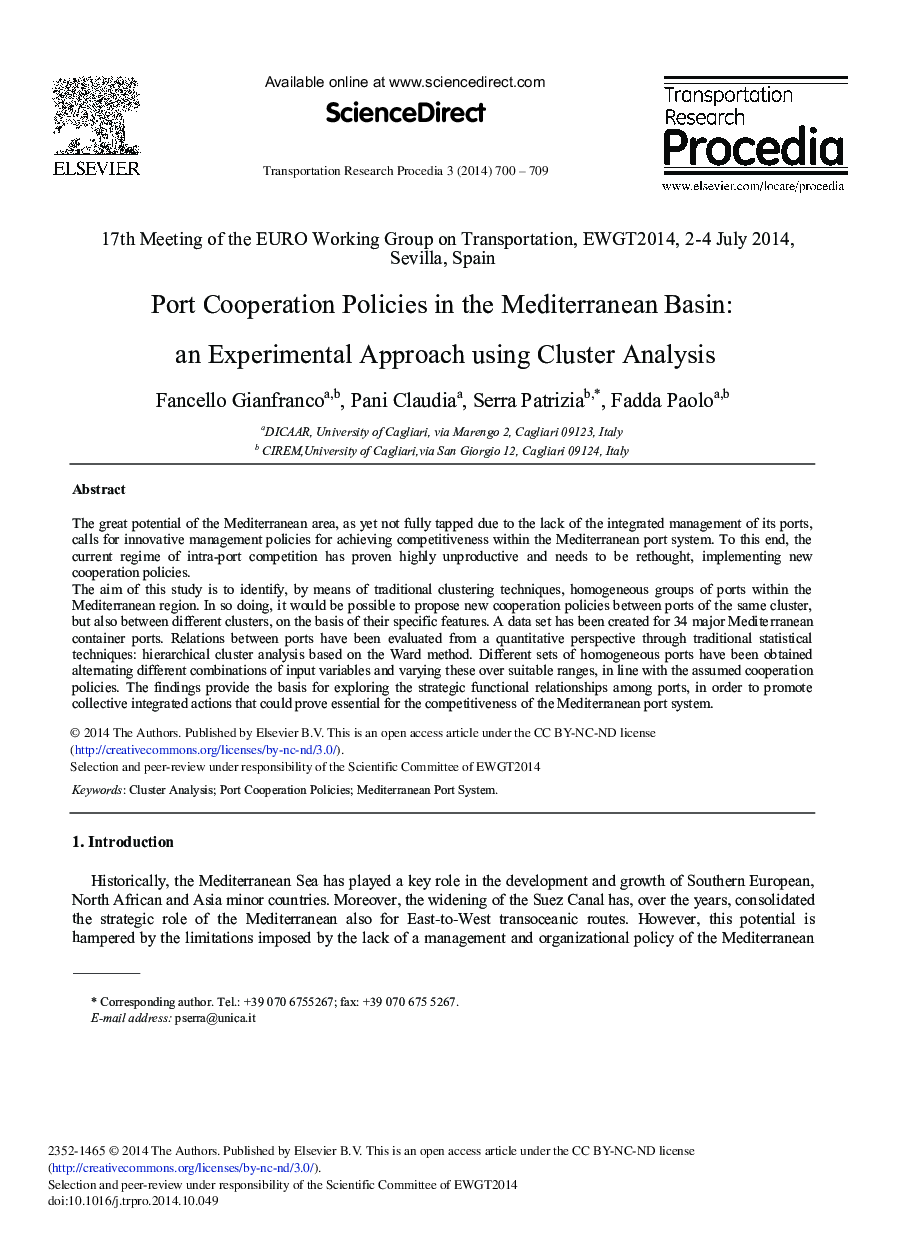| Article ID | Journal | Published Year | Pages | File Type |
|---|---|---|---|---|
| 1106450 | Transportation Research Procedia | 2014 | 10 Pages |
The great potential of the Mediterranean area, as yet not fully tapped due to the lack of the integrated management of its ports, calls for innovative management policies for achieving competitiveness within the Mediterranean port system. To this end, the current regime of intra-port competition has proven highly unproductive and needs to be rethought, implementing new cooperation policies.The aim of this study is to identify, by means of traditional clustering techniques, homogeneous groups of ports within the Mediterranean region. In so doing, it would be possible to propose new cooperation policies between ports of the same cluster, but also between different clusters, on the basis of their specific features. A data set has been created for 34 major Mediterranean container ports. Relations between ports have been evaluated from a quantitative perspective through traditional statistical techniques: hierarchical cluster analysis based on the Ward method. Different sets of homogeneous ports have been obtained alternating different combinations of input variables and varying these over suitable ranges, in line with the assumed cooperation policies. The findings provide the basis for exploring the strategic functional relationships among ports, in order to promote collective integrated actions that could prove essential for the competitiveness of the Mediterranean port system.
